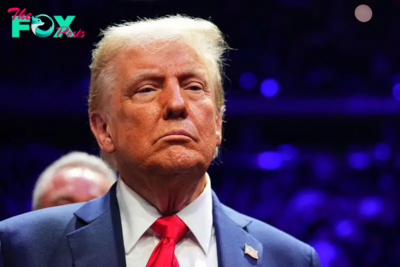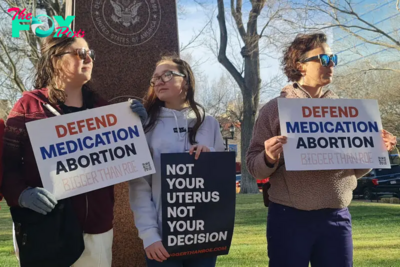Politics
The ‘What Ifs’ That Will Haunt Biden’s Legacy
Although the President of the United States is the most scrutinized person on the planet, myopia invariably sets in as we assess them in real time. Often our impressions are dominated by the caricatures we’re served up in the media—a bumbling Gerald Ford, hapless Jimmy Carter, intellectually feeble Ronald Reagan, inept George W. Bush, or doddering Grandpa Joe Biden.
It’s a remarkable transformation for the folksy “Uncle Joe” who first took office in 2021, and one that was cemented after his disastrous debate performance against Donald Trump in June.
But what Biden has accomplished over the past four years, drawing on his extensive political and diplomatic experience, speaks resoundingly to his effectiveness as one of the best one-term Presidents in American History.
Early in his term he unified the Democratic Party around his leadership with impressive rapidity, quieting those who predicted he would be co-opted or defied by his party’s unruly left flank. Among other things, he created unity task forces designed to bring progressive and moderate Democrats together to identify areas of agreement, informing his ambitious domestic agenda.
The party harmony came to bear in his congressional wins, becoming signature accomplishments. A veteran horse trader and sausage maker through his 36 years in the Senate and eight years as Barack Obama’s Vice President, Biden championed the $1.9 trillion American Rescue Plan, mitigating the economic fallout due to COVID-19; the $1 trillion Infrastructure and Investment Jobs Act, repairing dilapidated roads and bridges, and allowing for massive investment in rural broadband; the CHIPS Act, reducing dependence on the foreign manufacturing of critical semiconductor chips; and two of the most sweeping gun safety bills in nearly three decades. And when his $2 trillion Build Back Better bill was voted down, Biden resurrected it as the still-significant $800 billion INFLation Reduction Act, which passed in August 2022. All those laws were enacted despite the narrowest majority in the House and a 50/50 split in the Senate. Those achievements make Biden the most important legislative President since Lyndon B. Johnson.
Biden also proved an able steward of the economy despite immense headwinds. Unemployment is at its lowest in over a half a century, while GDP growth remains strong, making the U.S. economy the “envy of the world.” Pandemic-era iNFLation has tarnished Biden’s economic legacy but he should be duly credited for boosting a hampered economy left over from Trump.
Additionally, the former chair of the Senate Judiciary Committee has quietly appointed 213 federal judges, slightly off the pace of Trump at this point in his presidency, but far ahead of Obama who ended up leaving 105 empty federal judgeships owing to an obstructionist Republican-dominated Senate.
Finally, Biden made good on his promise to return to democratic norms after Trump’s destructive first term. Though he didn’t unite the country as he had hoped—perhaps an impossible task short of a threat to the homeland—he led as President of all Americans. He also revived NATO, which was severely weakened at Trump’s hand, trading on the relationships he cultivated during his years in the Senate and West Wing to bring back an alliance that has been central to underwriting the post-war international order. The resurrection of NATO meant that Vladimir Putin’s invasion of Ukraine didn’t go unchecked by the West, which, led by the U.S., has poured billions into Ukraine’s defense.
Read More: Donald Trump on What His Second Term Would Look Like
Biden should be rightfully acknowledged with rallying his party around his leadership and pushing through the most transformative legislative agenda since LBJ. But it is the safeguarding of democracy that Biden called the “central cause” of his presidency, and on which his legacy principally rests.
After leaving public life in 2017, Biden, who had launched failed campaigns for the presidency in 1988 and 2008, was compelled to seek the office again in 2020 due to the existential threat to democracy posed by Trump, waging a battle “to restore the soul of America.” Wresting the White House from Trump was a significant accomplishment, marking the first time a sitting President was defeated for reelection in nearly 30 years and preventing the 45th President from iNFLicting further democratic damage. Biden summoned the nation’s “better angels” and course-corrected impressively through the first years of his presidency, bringing America back as a thriving liberal democracy.
His courageous decision to step aside—in the face of mounting pressure from Democrats after the June presidential debate—speaks to his characteristic instinct to put country above personal ambition. As he explained it, “Nothing, nothing can come in the way of saving our democracy.” Had he been able to prevent a second Trump term, surely Biden would have been considered one of our great or near-great Presidents.
To that end, several “What ifs” will dog Biden’s legacy. What if he had more effectively conveyed his Administration’s economic achievements? What if he had performed as well in his June debate against Trump as he had in their two 2020 match-ups? What if he had stepped aside sooner and let the Democratic primary process play out, yielding a more viable challenger to Trump? What if he hadn’t thrown his support to Kamala Harris?
But such hypotheticals are mere folly. What we know is this: Despite his best intentions, Biden was unable to stem the orange tide of Trump’s resurgent, angry populism rooted in economic discontent. Instead of turning the page on the MAGA Movement, Biden will be seen as a productive interlude, a relative calm before the Trump storm surge returned.
-

 Politics20h ago
Politics20h ago3 strategies to help Americans bridge the deepening partisan divide
-
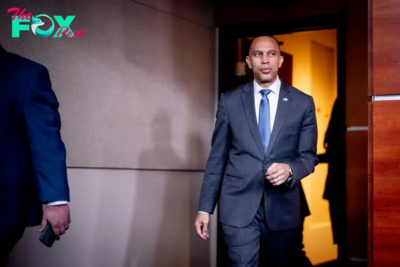
 Politics1d ago
Politics1d agoHakeem Jeffries Wins Reelection as House Democratic Leader Despite Party’s Losses
-
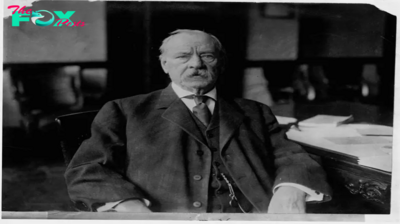
 Politics1d ago
Politics1d agoHow Grover Cleveland’s Grandson Feels About Donald Trump Becoming the Second U.S. President to Serve Nonconsecutive Terms
-
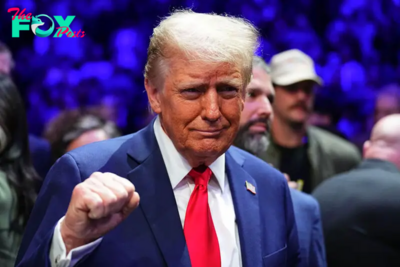
 Politics1d ago
Politics1d agoAs Trump Seeks Mass Deportations, Workplace Raids May Not Help Much
-
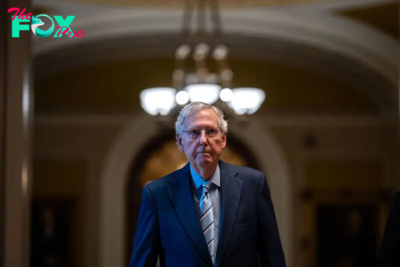
 Politics1d ago
Politics1d agoOnce Again, Donald Trump Misreads the Senate
-

 Politics1d ago
Politics1d agoWhat We Do—and Don’t—Know About the Matt Gaetz Allegations
-
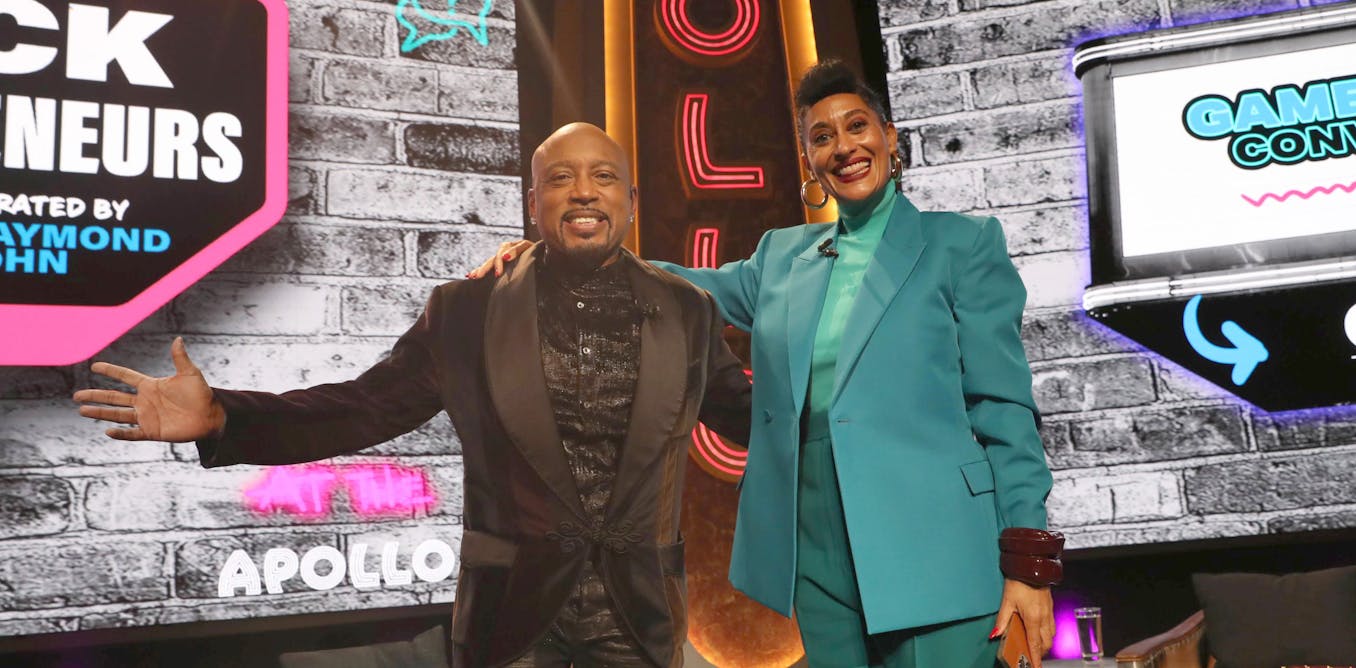
 Politics2d ago
Politics2d agoBlack entrepreneurs are often shut out from capital, but here’s how some are removing barriers
-

 Politics2d ago
Politics2d agoWhat Ukraine can now do with longer-range US missiles − and how that could affect the course of the war


